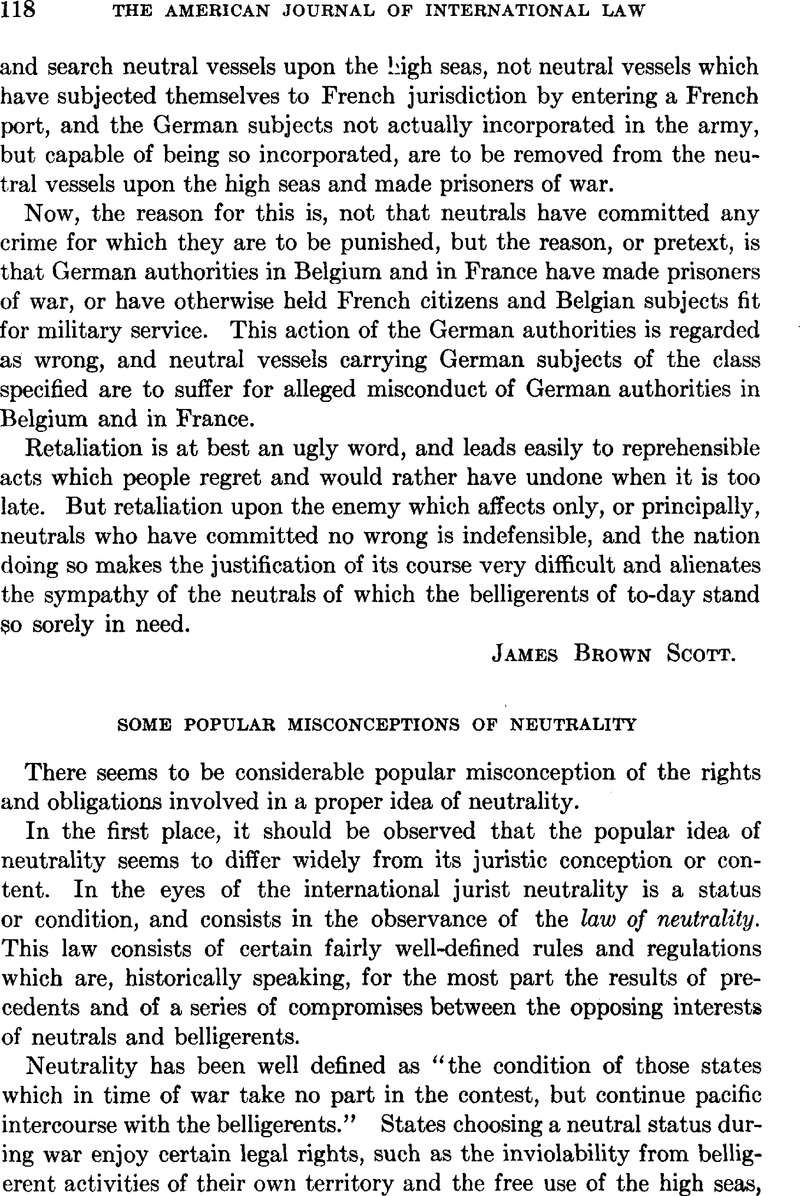No CrossRef data available.
Article contents
Some Popular Misconceptions of Neutrality
Published online by Cambridge University Press: 04 May 2017
Abstract

- Type
- Editorial Comment
- Information
- Copyright
- Copyright © American Society of International Law 1916
References
1 Jure Belli ac Pacis, lib. III, cap. 17.
2 Int. Law, II, pp. 160–61. Westlake cites with apparent approval the views of Lorimer as set forth in his Institute of the Law of Nations, II, Bk. IV, ch. 19. Lorimer considers neutrality or non-participation in belligerency justifiable only in the following cases:
(1) involuntary ignorance of the merits of the quarrel; and (2) impotence or physical inability to participate in the war.
3 Von Billow, Imperial Germany, p. 81. Von Billow claims that without “failing in strictly proper neutrality,” the neutrality of Germany with respect to Russia was “even a shade more kindly than that of France.”




